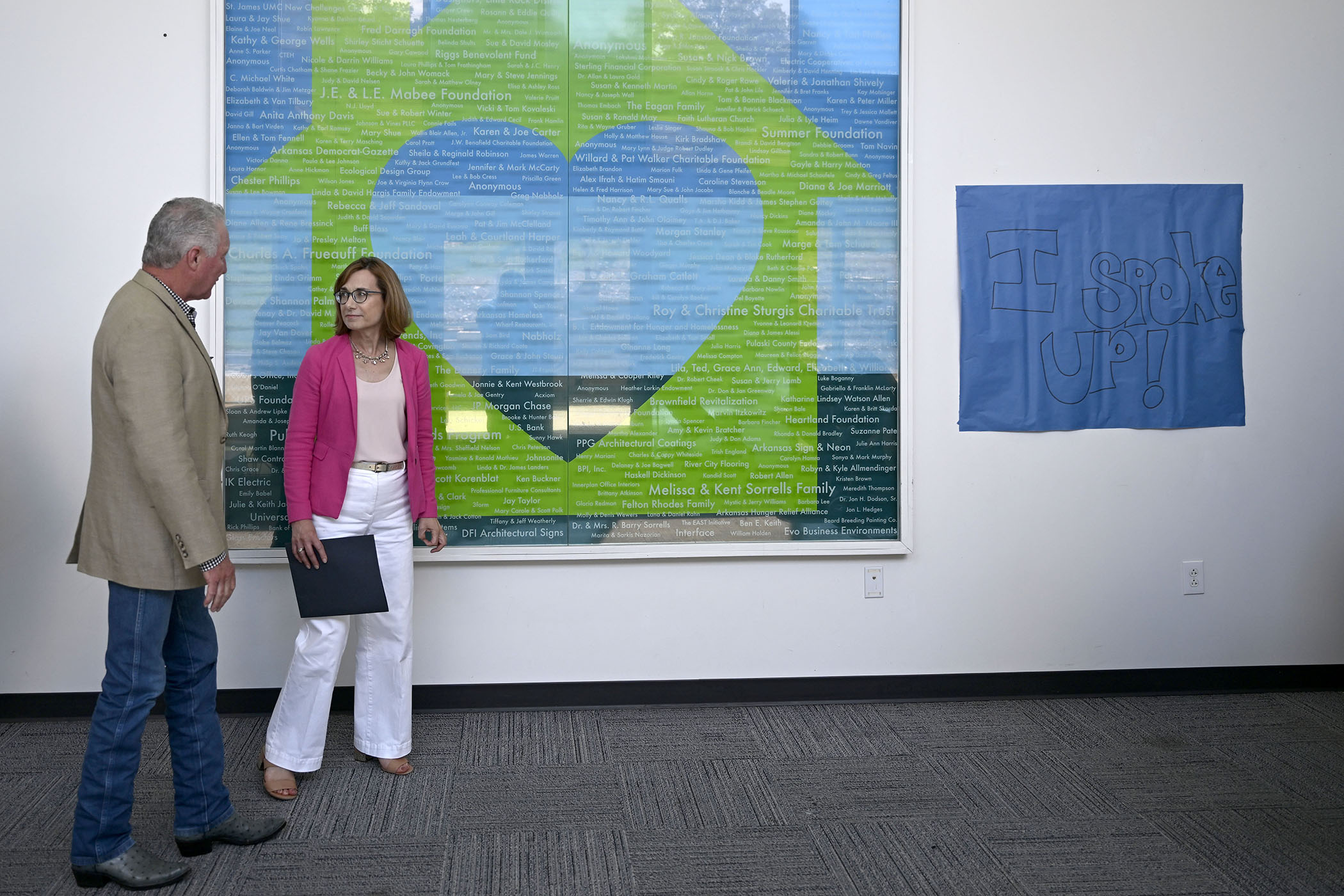U.S. Department of Agriculture Food and Nutrition Service Administrator Cindy Long visited Arkansas on Thursday to show support for the summer food program at Southwest Middle School in Searcy and Supplemental Nutrition Assistance Program services at Our House in Little Rock.
The federal Consolidated Appropriations Act allows school districts in rural areas to provide meal pick-up, instead of requiring parents to travel with their students to eat in lunchrooms for each meal.
During her stop in Little Rock, Long said a recent amendment to the law in December made the meal pickups possible, thanks in part to Sen. John Boozeman, R-Ark.
"Now those programs can not only serve kids if they're together, but it can also do pick-up meals, parents can come with their kids and get meals sometimes for up to a week or two weeks. So ... it really addresses that transportation problem," she said. "I'm just so excited to see what folks are going to be able to do to better serve rural communities with that program."
The program in Searcy is already serving 800 students a day, Long added.
Teachers and other community members were excited to tell Long about other programs they saw work in other states.
"I heard about another program -- a rec program where the kids do come in, but they come in, they have lunch, they're there for a few hours -- but they send breakfast home with them so kids can have breakfast the next day. So it's just really great to see how folks are taking the pieces and fitting them into where they see the need," Long said.
Another act from Congress Long mentioned was how states can now provide summer Electronic Benefit Transfer cards for families of students who receive free and reduced-price meals during the school year.
The state of Arkansas now funds reduced-price meals so families no longer have a copay due, but applications are crucial for this service so the state and federal reimbursements can kick in.
Long praised school nutrition workers and staff at Our House, the social services organization where she appeared Thursday.
"Every time I go into a school, the people that are working on the lunch line, they're saying hi to the kids, 'hey, sweetie, love to see my babies,'" she said. "The kids love them, they give them hugs. I don't think people know that, I'm not even sure parents know how attached kids are to those folks. I would love for those folks to get more credit for that, just the absolutely dedicated fabulous folks that they are."
Ben Goodwin, executive director at Our House, gave Long and Boozman's representatives a tour of the facility and new buildings under construction on the campus.
"[Our goal] to build a pathway out of homelessness has evolved over time to be more holistic," Goodwin said. "[But] our original vision of full-time employment and success in the workplace remains. We want to empower our residents to do that, and SNAP has given us more resources so employees can train for higher-paying jobs."
The new Supplemental Nutrition Assistance Program provisions in the Consolidated Appropriations Act allocated $100 million to state agencies.
As required by the act, 75% went to states based on their share of households that participate in SNAP for the most recent 12-month period for which data was available.
The remaining 25% was allocated to states based on the increase in the number of households that participated over the same time period.
Those allocations can be adjusted for participation in disaster SNAP programs as specified by the law.
Goodwin said the SNAP benefits are an important resource for clients as they transition out of homelessness.
Our House currently receives meal reimbursement through the federal Department of Agriculture for their residents.
A recent $16 million expansion provided by donors will allow Our House to increase all of its support services, including early childhood, school-age and youth programs, career services and mental and physical health services.
The expansion will increase its housing capacity by 50%. Christmas is the estimated completion date for the project.

